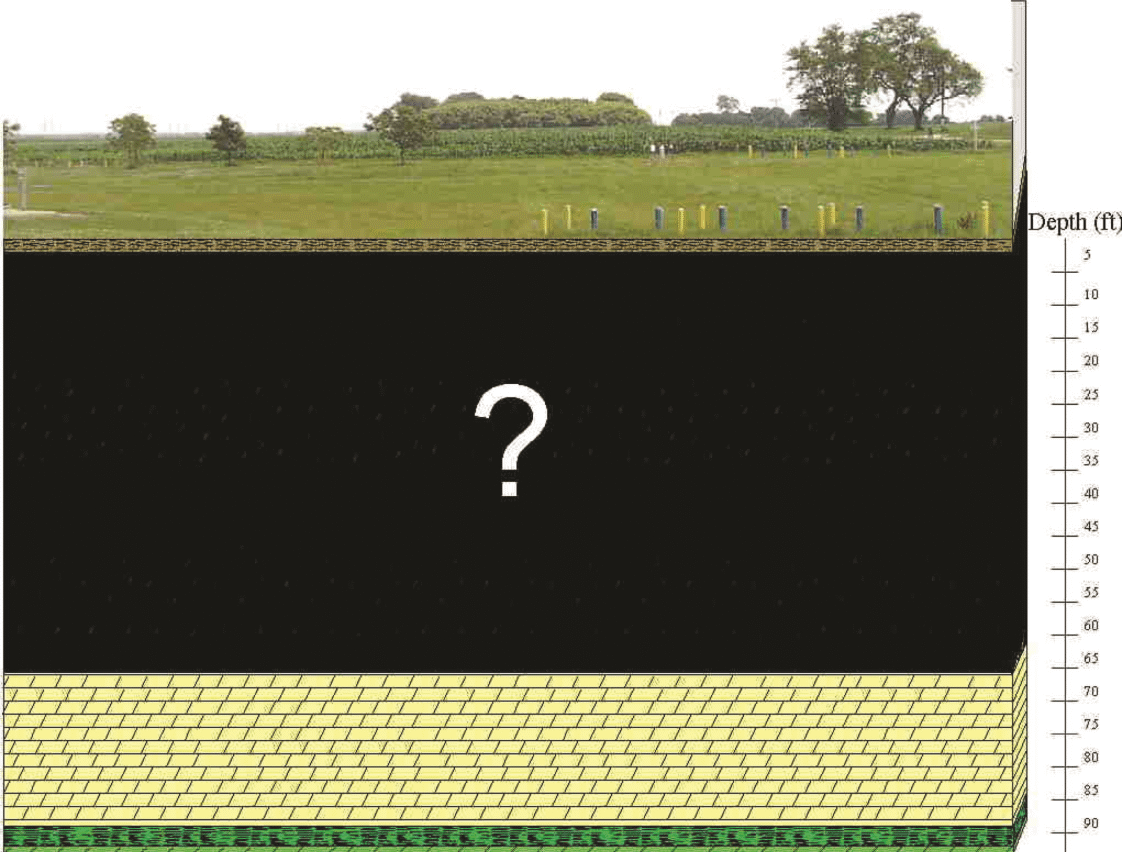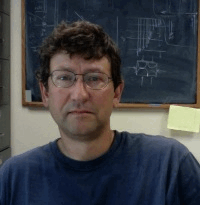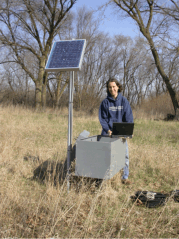HYDROGEOLOGY OF AQUITARDS AND
LOW-PERMEABILITY MATERIALS:
Part 1, Analysis of Aquitard Integrity
We face a common problem: how many times have you learned of a
shallow groundwater contamination problem and heard someone say
"We don't have to worry about the deep aquifer, it is protected by an overlying aquitard"

How many times have you seen cross sections showing that downward migration of contaminants stops at a clay or shale layer? Have you ever really investigated these aquitards? How do you know they are effective barriers to contaminant movement?
Aquitards are critically important for understanding groundwater protection, drinking water supplies, and contaminant movement. Although aquitards may seem to make up only minor parts of hydrostratigraphic sequences they commonly control the overall groundwater flow system by influencing recharge, discharge, vertical head distributions, groundwater flow paths, and contaminant migration. During this 2-part webinar series, you will:
- Discover the unique hydraulic properties of low-permeability units.
- Learn about recent advances for testing aquitard integrity and apply it to your monitoring or ground water supply protection program.
- Avoid common mistakes related to characterizing ground water movement and contaminant pathways in low-permeability units.
Both unconsolidated and bedrock aquitards share inherent low hydraulic conductivities, but approaches and field methods for characterizing each type can be completely different. This 2-part webinar series will unravel the complexity of aquitards and their hydrogeologic and hydraulic relationships.
Applications:
- Hydrogeologic Characterization
- Contaminant Investigation
- Remediation
- Water Supply
- Engineering Design
Highlights from Part One include:
- Aquifers and Aquitards: the importance of aquitards in all groundwater projects
- Definitions and basic categories of aquitards
- Hydrostratigraphic relationships and hydrogeologic context
- Definitions of aquitard integrity
- Keys to aquitard evaluation
- Defining the water table in low-permeability settings
- Do's and Don't's of monitoring aquitards
- How aquitards control groundwater flow system
Highlights from Part Two include:
- Do's and Don'ts of monitoring aquitards
- Relationships between hydraulic gradients, hydraulic conductivity, and groundwater flow rates
- Effects of transient conditions
- Evidence for (and against) perched conditions
- Contaminant transport across aquitards
- Do's and Don'ts of calculating solute transport in aquitards
- Example problem
Protect yourself, your company and your clients by learning how to assess which parts of the formation control aquitard integrity. The simple key to these concepts is correctly evaluating aquitard integrity.
Discover these hydrogeologic tools that are found no where else on the web.
Instructors Bio
David Hart, PhD, PG
 Dave Hart is a hydrogeologist/geophysicist with the Wisconsin Geological and Natural History Survey and an associate professor at the University of Wisconsin-Extension.
Dave Hart is a hydrogeologist/geophysicist with the Wisconsin Geological and Natural History Survey and an associate professor at the University of Wisconsin-Extension.
Dave's applied research includes regional groundwater flow and recharge in southeastern Wisconsin, near-surface geophysics, and measurement of porosities and permeabilities in aquifers and aquitards. Prior to joining the university, he served as a hydrogeologist with Eder Associates. He is an associate editor for Ground Water and past president of the AWRA - Wisconsin Section.
Madeline Gotkowitz, PhD
Hydrogeologist, Wisconsin Geological and Natural History Survey
Associate Professor, University of Wisconsin - Extension
 Madeline Gotkowitz is a research scientist at the Wisconsin Geological and Natural History Survey, where her work focuses on regional groundwater flow and transport modeling, subsurface fate and transport of human enteric viruses, and flow and transport across aquitards. Gotkowitz's field-based investigations of arsenic in groundwater address conditions in surficial and bedrock aquifers, and the affect of well disinfection on arsenic release. Gotkowitz holds a B.A. in Environmental Sciences from Smith College and an M.S. in Hydrology from New Mexico Institute of Mining and Technology.
Madeline Gotkowitz is a research scientist at the Wisconsin Geological and Natural History Survey, where her work focuses on regional groundwater flow and transport modeling, subsurface fate and transport of human enteric viruses, and flow and transport across aquitards. Gotkowitz's field-based investigations of arsenic in groundwater address conditions in surficial and bedrock aquifers, and the affect of well disinfection on arsenic release. Gotkowitz holds a B.A. in Environmental Sciences from Smith College and an M.S. in Hydrology from New Mexico Institute of Mining and Technology.
| Fee: |
299.00 USD Per Webinar
|
| Materials and Downloads: |
Session Slides (PDF)
Additional MaterialsRecord of Attendance Form (PDF)
|
Number of
Participants: |
AS OF JUNE 1, 2020, WEBINARS ARE PRICED FOR INDIVIDUALS WORKING ALONE. Pricing is discounted for individual registrations for people working alone.
|
Continuing
Education
Certificates: |
$14.95 each. Official CEU certificates are available as an option. After successful completion of this webinar, a link will be provided to order a certificate.
|
| Access: |
On-demand, anytime 24/7. |
| Discounts: |
Buy 3 on-demand webinars, and get 3 on-demand webinars for free!
|
| Duration: |
90 minutes |
| PDH Earned: |
1.5 hours |
| |
|
| Instructor(s): |
David Hart, PhD, PG and Madeline Gotkowitz, PhD |